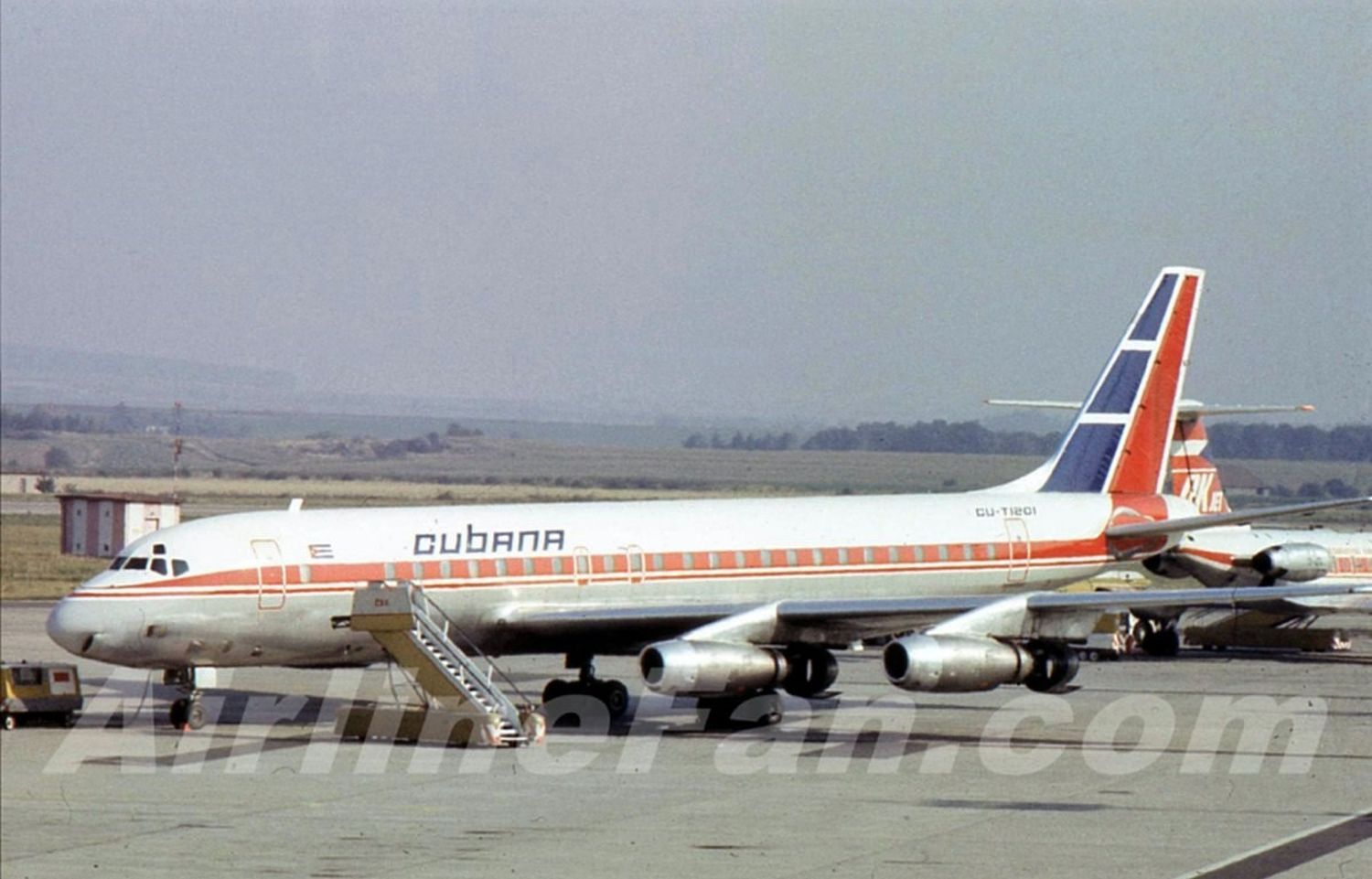Bombs over the Caribbean Sea: 47 years after the bombing that downed a Cubana de Aviación DC-8
On October 6, the 47th anniversary of the tragic bombing of Cubana de Aviación Flight 455 was observed. This event serves as a grim reminder of the volatile geopolitical tensions of the 1970s and the profound impact they had on innocent lives.
On October 6, 1976, Flight 455, a Douglas DC-8 aircraft with registration CU-T1201, departed from Barbados with 73 passengers on board. Its destination was Jamaica, but it would never arrive. Shortly after takeoff, two bombs placed onboard detonated, causing the plane to crash into the Caribbean Sea. All 73 people, including the Cuban national fencing team, perished.
The investigation into the attack revealed a sinister plot stemming from the prolonged political tensions between Cuba and anti-Castro Cuban exiles. Evidence pointed to the involvement of two Venezuelans, Hernán Ricardo and Freddy Lugo, who were later found guilty of placing the explosives. They worked for Luis Posada Carriles and Orlando Bosch, both fervent anti-Castro activists with ties to extremist groups in the Cuban exile community.
Lugo and Lozano boarded the plane in Guyana to disembark in Barbados after placing the explosives, one between the seats at the front and another in a restroom at the back.
The loss of Flight 455 was not only a tragedy for the victims’ families but also a clear representation of Cold War tensions that manifested in Latin America during that era. For many years, the event was overshadowed by other geopolitical crises, but it remains one of the deadliest terrorist acts in the history of the Western Hemisphere.
Luis Posada Carriles, a former CIA operative, and Orlando Bosch, both accused of masterminding the bombing, remained controversial figures until their deaths. Carriles lived freely in Miami for many years after the attack, and although Venezuela requested his extradition multiple times, it was denied. His presence on US soil was a point of contention in US-Cuba relations, with Havana accusing Washington of harboring a terrorist. Bosch was arrested and spent several years in a Venezuelan prison for his role in the attack but was later acquitted of all charges, a decision that remains controversial.
Today, as we reflect on the 47th anniversary of this heinous act, it serves as a reminder of the dangers of unchecked extremism and the importance of diplomatic engagement. The victims of Flight 455, whose lives were taken in an instant, represent countless other individuals who have been caught in the crossfire of political disputes, both past and present.
The DC-8s of Cubana de Aviación
The state-owned airline Cubana had three DC-8s that were leased from Air Canada in the 70s.
In addition to the CU-T1201, which was brought down by a terrorist attack, another met a tragic end. On March 18, 1976, while approaching José Martí airport in Havana en route from Montreal, the DC-8 CU-T1200 collided mid-air with an Antonov An-24. The latter crashed, and all its five occupants died, while the DC-8 landed even after losing part of a wing and an engine, but it never returned to commercial service.
The third DC-8, registration CU-T1210, remained in the Cubana de Aviación fleet until 1978 when it briefly returned to Air Canada and then moved on to Air Jamaica, AeroPerú, and ended its service with Capitol International Airlines in 1981.




Comentarios
Para comentar, debés estar registrado
Por favor, iniciá sesión